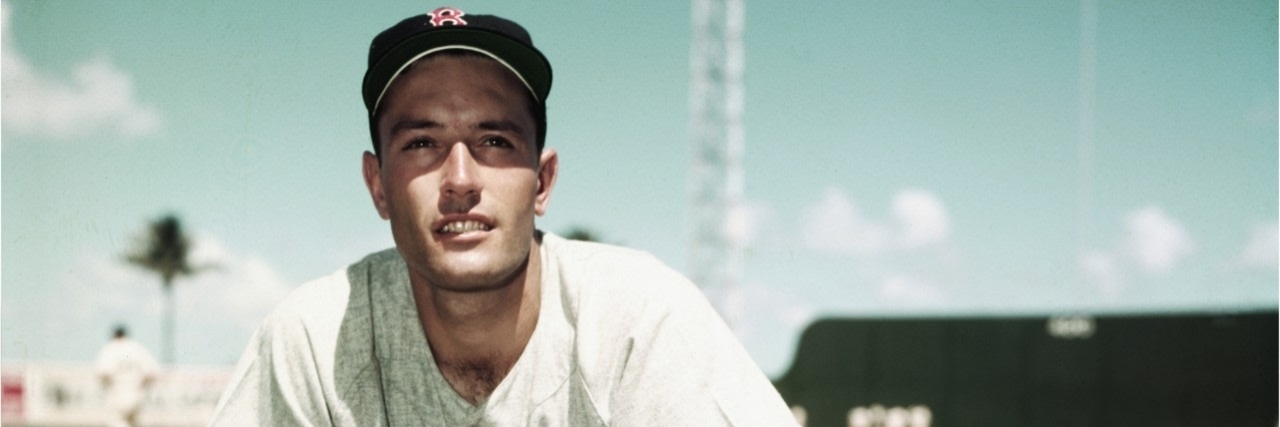A headline flickered across my Facebook feed: Jimmy Piersell, MLB player with mental illness, dies at 87. My interest was piqued — why is he remembered for his mental illness?
Several articles later, I came to know more about Jimmy. Born in 1929, he made it big in baseball in the 50s, starting with the Red Sox. He was said to be one of the best right fielders in the game, with a lot of potential. But he was also known for how he acted on the field — mimicking other players, fighting with umpires, shouting insults at fans. It sold tickets but got everyone calling him “crazy.” Finding out he was going to be switched to shortstop seemed to flip a switch in his head. He kept acting more and more “bizarrely” until he was finally sent to a sanitarium, and then the violent ward of a mental institution.
Jimmy woke up in a straightjacket with no memory of the previous nine months. They “cured” him with electroshock therapy. He was diagnosed with manic-depressive disorder (we now call it bipolar disorder). Through long sessions with his psychiatrist and months of rest, he felt ready to return to baseball and was better after that.
I was moved by how mental illness was perceived back then. Jimmy had mental health problems from a young age but they were never diagnosed. His mother had trips to the mental hospital, but it was all so secretive that he didn’t know where she was until he was an adult. As a ballplayer, he was continually called “crazy.” In the hospital, he was strapped down and given intense electroshock treatments that erased nine months of his memory.
I’m amazed by how he was mistreated. But even more than that, I am amazed by his brave response to those who mocked him. He wrote an article called “They Called Me Crazy — and I Was!” In the article, he talked plainly about struggling with a mental illness since childhood. He talked candidly about his breakdown and hospitalization.
It amazes me that he was so brave to talk about his illness and raise awareness in the 1950s. Jimmy would go on to write a book about his life. His wife also spoke up in her article, “They Called My Husband Crazy.”
Jimmy said he was cured after the hospitalization, but it doesn’t seem that simple. He still acted up at baseball games after that — it just wasn’t as bad as before. He was on medication for 50 years, which he says helped him remain stable.
Jimmy is famous for running around the bases backwards after his 100th home run, for squirting the plate with a water pistol during an argument with an umpire and for mocking other players by imitating them. These actions might have been related to a manic episode, but back then people called it “crazy.”
After recovering from his breakdown, Jimmy was asked to speak at a support group in Chicago, Fight Against Fears, for people recovering from stays in mental hospitals. Later on, he had a television interview where he talked about the support group and encouraged people that they can recover from mental health issues and have healthy lives. He had an outpouring of letters after the television interview and the support group grew from 40 members to 500. He was later awarded a plaque by the group for being an inspiration to them.
Jimmy’s words resonate with me today. In his articles, he explains, “I want the world to know that people like me, who have returned from the half-world of mental oblivion, are not further contaminated. We have been sick. The best way to help us get well and stay well is to treat us like human beings — as I’ve been treated. There is no better therapy than understanding. I have received my share of that, for which I thank God every day of my life. But in order that I and others like me may be fully understood, I must tell my story from the beginning.”
I am so inspired by those words. I repeat them to myself. In order for me and others like me be fully understood, I must tell my story from the beginning. That is the best way to raise awareness, to tell my story plainly and to help people understand mental illness.
After Jimmy’s breakdown, once a fan mocked him, saying “Hey, screwball, watch out for the man in the white coat!” Jimmy turned and yelled, “How would you like to be making the money this screwball makes!”
I’m glad Jimmy could find humor and strength even when being mocked due to his illness. His bravery inspires me to tell my story and work hard to achieve my goals. Jimmy acted “bizarrely” due to a long manic episode, was hospitalized, lost his memory and had to endure taunting by fans, in a time when this stuff wasn’t talked about; but he still came back to baseball, finishing out his career and then continuing to do similar work after his retirement. He played professional baseball for 20 years, most of it after his breakdown. His strength inspires me to be strong. His bravery in writing publicly about his mental illness inspires me to write openly about mine. I may never make it to the majors, but I can continue to raise awareness about mental illness and break the stigma.
We want to hear your story. Become a Mighty contributor here.
Lead image via YouTube

